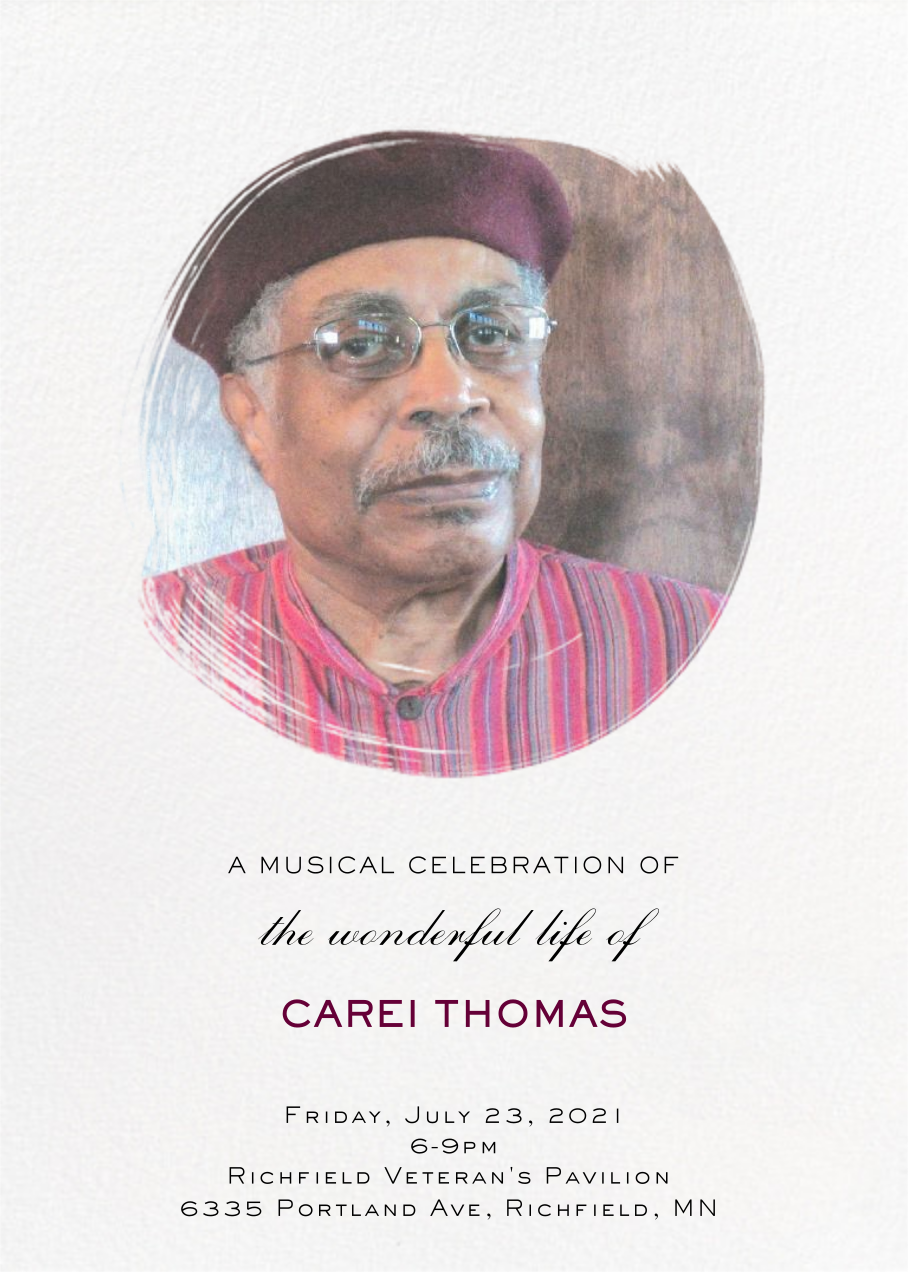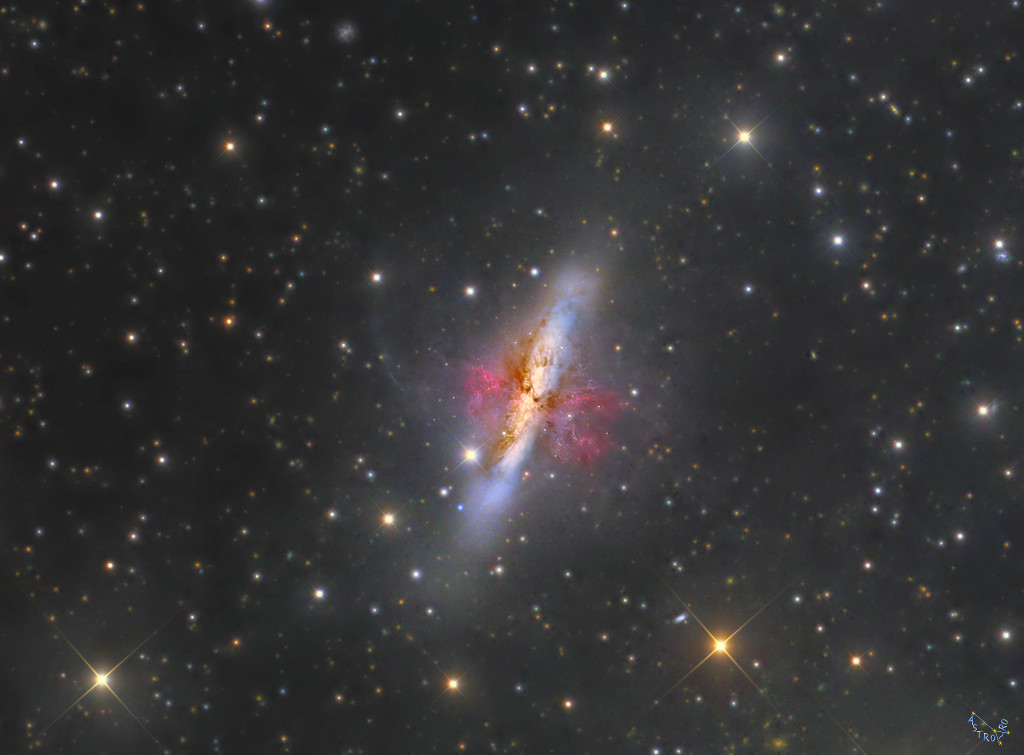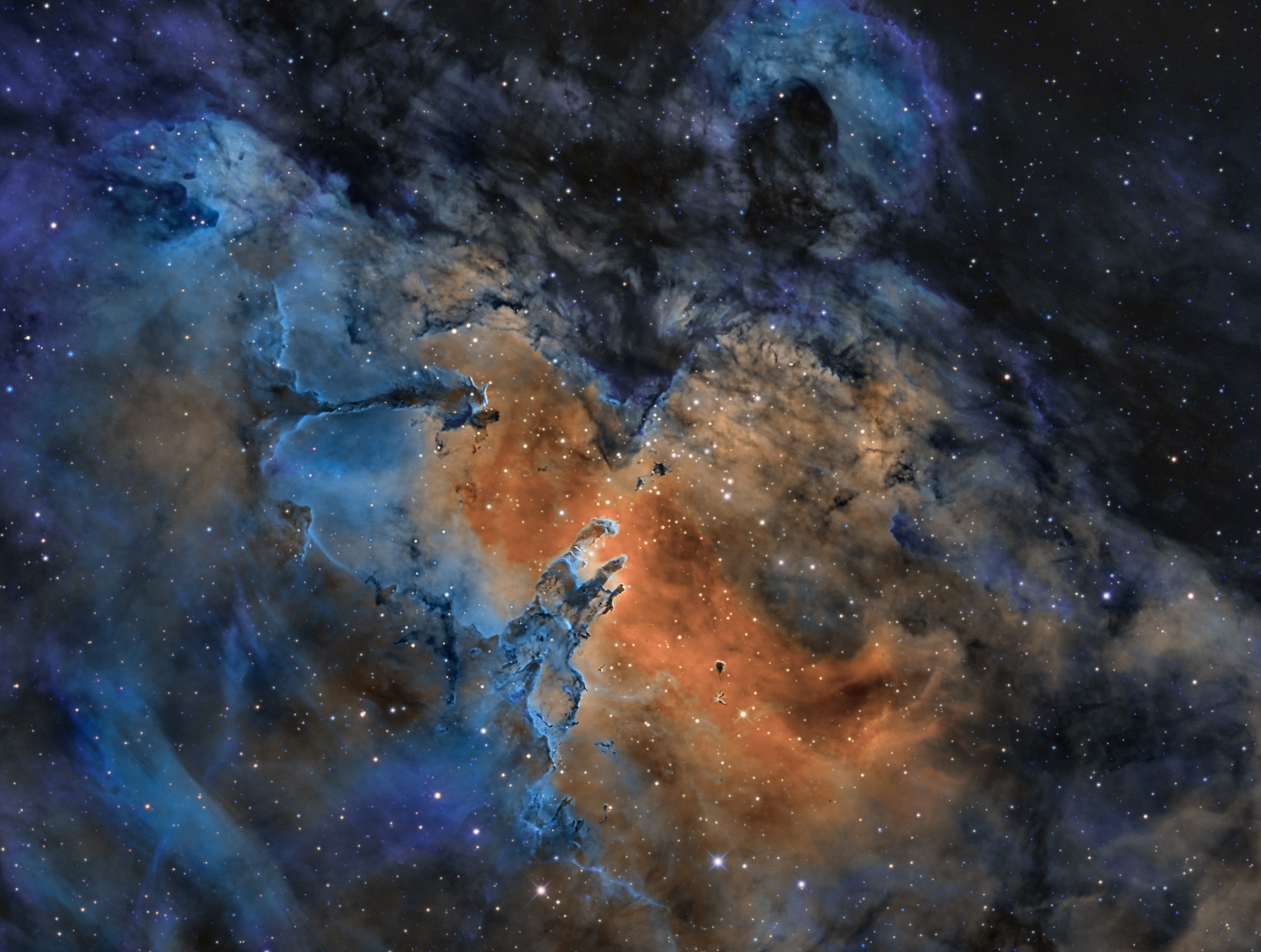Blog

Rhythm Roots Workshop world drumming program with Task Unlimited (https://tasksunlimited.org) working with the Mental Health community. Saturday July 10th 2021 from 430-6pm.
Tasks Unlimited
2419 Nicollet Ave S.
Minneapolis, MN 55404

The Lagoon Nebula (catalogued as Messier 8 or M8, NGC 6523, Sharpless 25, RCW 146, and Gum 72) is a giant interstellar cloud in the constellation Sagittarius. It is classified as an emission nebula and as an H II region.
The Lagoon Nebula was discovered by Giovanni Hodierna before 1654 and is one of only two star-forming nebulae faintly visible to the eye from mid-northern latitudes. Seen with binoculars, it appears as a distinct oval cloudlike patch with a definite core. Within the nebula is the open cluster NGC 6530.

Béla Anton Leoš Fleck (born July 10, 1958) is an American banjo player. An acclaimed virtuoso, he is an innovative and technically proficient pioneer and ambassador of the banjo, bringing the instrument from its bluegrass roots to jazz, classical, rock and various world music genres. He is best known for his work with the bands New Grass Revival and Béla Fleck and the Flecktones. Fleck has won 14 Grammy Awards and been nominated 33 times.
In 2020, he was inducted into the International Bluegrass Music Hall of Fame as a member of New Grass Revival.
A native of New York City, Fleck was named after Hungarian composer Béla Bartók, Austrian composer Anton Webern, and Czech composer Leoš Janáček. He was drawn to the banjo at a young age when he heard Earl Scruggs play the theme song for the television show Beverly Hillbillies and when he heard “Dueling Banjos” by Eric Weissberg and Steve Mandell on the radio. At the age of 15, he received his first banjo from his grandfather.
more...Edward Lee Morgan (July 10, 1938 – February 19, 1972) was an American jazz trumpeter and composer.
One of the key hard bop musicians of the 1960s, Morgan came to prominence in his late teens, recording on John Coltrane‘s Blue Train (1957) and with the band of drummer Art Blakey before launching a solo career. Morgan stayed with Blakey until 1961 and started to record as leader in the late ’50s. His song “The Sidewinder“, on the album of the same name, became a surprise crossover hit on the pop and R&B charts in 1964, while Morgan’s recordings found him touching on other styles of music as his artistry matured. Soon after The Sidewinder was released, Morgan rejoined Blakey for a short period. After leaving Blakey for the final time, Morgan continued to work prolifically as both a leader and a sideman with the likes of Hank Mobley and Wayne Shorter, becoming a cornerstone of the Blue Note label.
Morgan’s life was cut short at the age of 33 when his common-law wife Helen shot and killed him following a confrontation at Slugs’ Saloon, in New York City.
Edward Lee Morgan was born in Philadelphia, Pennsylvania, on July 10, 1938, the youngest of Otto Ricardo and Nettie Beatrice Morgan’s four children.
Originally interested in the vibraphone, he soon showed a growing enthusiasm for the trumpet. Morgan also knew how to play the alto saxophone. On his thirteenth birthday, his sister Ernestine gave him his first trumpet. His primary stylistic influence was Clifford Brown, with whom he took a few lessons as a teenager.
more...Milton Brent Buckner (July 10, 1915 – July 27, 1977) was an American jazz pianist and organist, who in the early 1950s popularized the Hammond organ. He pioneered the parallel chords style that influenced Red Garland, George Shearing, Bill Evans, and Oscar Peterson. Buckner’s brother, Ted Buckner, was a jazz saxophonist.
Milton Brent Buckner was born in St. Louis, Missouri. His parents encouraged him to learn to play piano, but they both died when he was nine years old. Milt and his younger brother Ted were sent to Detroit where they were adopted by members of the Earl Walton band:[2] trombonist John Tobias, drummer George Robinson fostered Milt and reedplayer Fred Kewley (né Fred Cecil Kewley; 1889–1953) fostered Ted.[4] Buckner studied piano for three years from the age 10, then at 15 began writing arrangements for the band, he and his brother going on to become active in the Detroit jazz world in the 1930s.
more...Charles Melvin “Cootie” Williams (July 10, 1911 – September 15, 1985) was an American jazz, jump blues, and rhythm and blues trumpeter.
Born in Mobile, Alabama, Williams began his professional career at the age of fourteen with the Young Family band, which included saxophonist Lester Young. According to Williams he acquired his nickname as a boy when his father took him to a band concert. When it was over his father asked him what he’d heard and he replied, “Cootie, cootie, cootie.”
In 1928, he made his first recordings with pianist James P. Johnson in New York, where he also worked briefly in the bands of Chick Webb and Fletcher Henderson. He rose to prominence as a member of Duke Ellington‘s orchestra when the band was playing at the Cotton Club, with which he first performed from 1929 to 1940. He also recorded his own sessions during this time, both freelance and with other Ellington sidemen. Williams was renowned for his “jungle” style trumpet playing (in the manner of Ellington’s earlier trumpeter Bubber Miley and trombonist Joe “Tricky Sam” Nanton) and for his use of the plunger mute. He also sang occasionally. A notable instrumental feature being in the Ellington piece, “Echoes of the Jungle”. For him, Duke Ellington wrote ”Concerto for Cootie,” which when lyrics were added became “Do Nothing till You Hear from Me“. He was also the soloist in other Ellington compositions like ””Echoes of Harlem“”, “Harlem Air Shaft“, and the religious piece ”The Shepherd Who Watches Over the Night Flock,” which was dedicated to the Rev. John Gensel.
more...Blind Boy Fuller (born Fulton Allen, July 10, 1904 or 1907 – February 13, 1941) was an American blues guitarist and singer. Fuller was one of the most popular of the recorded Piedmont blues artists with rural African Americans along with Blind Blake, Josh White, and Buddy Moss.
Allen was born in Wadesboro, North Carolina, United States, one of ten children of Calvin Allen and Mary Jane Walker. Most sources date his birth to 1907, but the researchers Bob Eagle and Eric LeBlanc indicate 1904. After the death of his mother, he moved with his father to Rockingham, North Carolina. As a boy he learned to play the guitar and also learned from older singers the field hollers, country rags, traditional songs and bluespopular in poor rural areas.
https://www.youtube.com/watch?v=ORFwmWd9TN4
more...https://www.youtube.com/watch?v=z4RSz4yaMQY&list=PLEB3LPVcGcWbHKyo-uy8CkVvebHEsluVK&index=67
more...M82 is a starburst galaxy with a superwind. In fact, through ensuing supernova explosions and powerful winds from massive stars, the burst of star formation in M82 is driving a prodigious outflow. Evidence for the superwind from the galaxy’s central regions is clear in sharp telescopic snapshot. The composite image highlights emission from long outflow filaments of atomic hydrogen gas in reddish hues. Some of the gas in the superwind, enriched in heavy elements forged in the massive stars, will eventually escape into intergalactic space. Triggered by a close encounter with nearby large galaxy M81, the furious burst of star formation in M82 should last about 100 million years or so. Also known as the Cigar Galaxy for its elongated visual appearance, M82 is about 30,000 light-years across. It lies 12 million light-years away near the northern boundary of Ursa Major.

John Graham “Mitch” Mitchell (9 July 1946 – 12 November 2008) was an English drummer and child actor, who was best known for his work in the Jimi Hendrix Experience. He was inducted into the Modern Drummer Hall of Fame in 2009.
Mitchell was born in Ealing, Middlesex, to Phyliss C (née Preston) and Thomas J Mitchell on 9 July 1946 (although several modern sources have incorrectly claimed that he was born in 1947). As a teenager he starred in a children’s television programme, Jennings at School, and starred in a leading role in the 1960 British film Bottoms Up with Jimmy Edwards.
more...Frank Wright (9 July 1935 – 17 May 1990) was an American free jazz musician known for his frantic style of tenor saxophone. Critics often compare his music to that of Albert Ayler, although Wright “offers his honks and squawks with a phraseology derived from the slower, earthier funk of R&B and gospel music.” According to AllMusic biographer Chris Kelsey, Wright “never recorded even a single record under his own name for a major label; he was ‘underground’ his entire career.” In addition to tenor saxophone, Wright also played the soprano saxophone and bass clarinet.
Wright was born in Grenada, Mississippi and grew up in Memphis, Tennessee and Cleveland, Ohio, where he began his musical career playing bass guitar, backing artists such as Rosco Gordon, Bobby “Blue” Bland, and B.B. King. He switched to tenor saxophone after meeting Albert Ayler in Cleveland, Ayler’s hometown. In 1964, Wright moved to New York City, where he played with Larry Young, Noah Howard, and Sunny Murray. He also sat in with John Coltrane and, in early 1965, was invited to participate in the recording of Ascension, but reportedly felt that his skills were not up to the demands of the music. (Later, however, Wright stated “what I do is countersigned by master John Coltrane who accepted me at this side by calling me ‘little brother’.”
more...Haydée Mercedes Sosa (Spanish pronunciation: [meɾˈseðes ˈsosa]; 9 July 1935 – 4 October 2009), sometimes known as La Negra (literally: ‘The Black One’), was an Argentine singer who was popular throughout Latin America and many countries outside the region. With her roots in Argentine folk music, Sosa became one of the preeminent exponents of La nueva canción. She gave voice to songs written by many Latin American songwriters. Her music made people hail her as the “voice of the voiceless ones”.
Sosa performed in venues such as the Lincoln Center in New York City, the Théâtre Mogador in Paris and the Sistine Chapel in Vatican City, as well as sell-out shows in New York’s Carnegie Hall and the Roman Colosseum during her final decade of life. Her career spanned four decades and she was the recipient of six Latin Grammy awards (2000, 2003, 2004, 2006, 2009, 2011), including a Latin Grammy Lifetime Achievement Award in 2004 and two posthumous Latin Grammy Award for Best Folk Album in 2009 and 2011. She won the Premio Gardel in 2000, the main musical award in Argentina. She served as an ambassador for UNICEF.
https://www.youtube.com/watch?v=brI6TFM0TrQ
more...Colin James Bailey (born 9 July 1934) is British-born American jazz drummer.
Born in Swindon, England in 1934, Bailey learned to play drums as a child, studying formally from age seven. His first band was the Nibs, when he was 7, which consisted of two accordions, banjo and drums. He toured with Winifred Atwell from 1952-1956, and performed at the London Palladium for Queen Elizabeth (1952). He lived in Australia from 1958 into the early 1960s, playing in the staff band for Channel 9 TV. In Sydney he played with Bryce Rohde and the Australian Jazz Quartet, backing musicians such as Dizzy Gillespie and Sarah Vaughan. When the AJQ toured the U.S., Bailey was hired by Vince Guaraldi, with Monty Budwig on bass. This trio played with Jimmy Witherspoon, Ben Webster, and Gene Ammons for the Jazz Workshop in San Francisco.
more...Joseph Christopher Liggins, Jr. (born Theodro Elliott; July 9, 1916 – July 26, 1987) was an American R&B, jazz and blues pianist and vocalist who led Joe Liggins and his Honeydrippers in the 1940s and 1950s. His band appeared often on the Billboard magazine charts. The band’s biggest hit was “The Honeydripper“, released in 1945. Joe Liggins was the older brother of R&B performer Jimmy Liggins.
The son of Harriett and Elijah Elliott, he was born in Seminole, Oklahoma, and took his stepfather’s surname, Liggins, as a child. He apparently dropped the name Theodro and adopted the names Joseph Christopher during the 1930s. The family moved to San Diego in 1932. He graduated from Hoover High School, studied music at San Diego State College, and performed with local bands at clubs and Naval bases. He wrote arrangements on a freelance basis for Curtis Mosby’s Blue Blowers, and in 1935 Liggins joined the Creole Crusaders, which was led by the drummer Ellis Walsh.
https://www.youtube.com/watch?v=wfrp-8PEHm0
more...The seguiriya has a bleak character, something that translates into the presence of much complaining and little lyrics. In fact, one way to identify this flamenco style is to pay attention to the achievement of ‘ayes’ that it has.
This tragic element that the seguiriya possesses may be motivated by the belief that it is a style that comes from the plañideras, women who were hired to sing in the wake. Since it was a song of mourning, death is very present in the letters of this style.
It is a song that has the basic values of what is known as the jondo and pure song. His lyrics are of pain, tragic, which reflects the suffering of human relationships, love and death.
From the musical aesthetics of the seguiriya, are inspired many flamenco styles such as dry styles songs (without guitar) or malagueñas, among others.
The origin of the seguiriya has been a real headache for musicologists, but they have come to determine that the metric of this style reverses the order of the compasses of the soleá, that is, 3×4 + 6×8.
more...The famous pillars of gas in the core of the Eagle’s nebula, known also as a star nursery, shooted using narrowband filters in the OIII, SII and Ha at 7nm, but mapped insted of the traditional Hubble Palette, in a OIII+Ha+SII palette (OIII for Red, Ha for Green and SII for Blue), giving a blueish color around the image with the center core in yellows, pushing the contrast between the pillars and the surrounding nebula and gases. The Eagle Nebula (catalogued as Messier 16 or M16, and as NGC 6611, and also known as the Star Queen Nebula and The Spire) is a young open cluster of stars in the constellation Serpens, discovered by Jean-Philippe de Cheseaux in 1745–46. Both the “Eagle” and the “Star Queen” refer to visual impressions of the dark silhouette near the center of the nebula, an area made famous as the “Pillars of Creation” imaged by the Hubble Space Telescope. The nebula contains several active star-forming gas and dust regions, including the aforementioned Pillars of Creation. The Eagle Nebula lies in the Sagittarius Arm of the Milky Way.

More Posts
- Daily Roots with Stephaine Samuels
- The Cosmos with M110
- Dr. Lonnie Smith Day
- John Heard Day
- Johnny Coles Day
- World Music with Amadou & Mariam
- Daily Roots with Joy White
- “Where theres smoke, theres more smoke.” mick vs Judge Judy
- The Cosmos with NGC 1566
- Charlie Watts Day
- Ahmad Jamal Day
- Sheikh Imam Day
- World Music with ALTAI KAI
- Daily Roots with Love Joys
- The Cosmos with M102
- Rashied Ali Day
- James Cotton Day
- Willie Dixon Day
- World Fusion with AKA Trio
- Daily Roots with Jennifer Lara